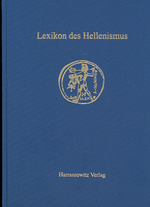Nun Glauben wir dem kleinen Handtaschen lexikon von Aulon oder doch lieber den Universitäten aus England und den USA?
Universität Illinois aus den USA :"
Jones, Archer (2001). The art of war in the Western world. Urbana: University of Illinois Press. p. 32. ISBN 0-252-06966-8. "The particulars of these with Pyrrhus of the Greek kingdom of Epirus"
Universität California aus den USA:
Errington, Malcolm R. A History of Macedonia. University of California Press, , ISBN 0520063198.:
"The Molossians were the strongest and, decisive for Macedonia, most easterly of the three most important Epeirot tribes, which, like Macedonia but unlike the Thesprotians and the Chaonians, still retained their monarchy. They were Greeks, spoke a similar dialect to that of Macedonia, suffered just as much from the depredations of the Illyrians and were in principle the natural partners of the Macedonian king who wished to tackle the Illyrian problem at its roots."
Cambridge Universität aus England:
Cambridge, UK: Cambridge University Press. "That the Molossians[...]spoke Illyrian or another barbaric tongue was nowhere suggested, although Aeschylus and Pindar wrote of Molossian lands. That they in fact spoke Greek was implied by Herodotus' inclusion of Molossi among the Greek colonists of Asia Minor, but became demonstrable only when D. Evangelides published two long inscriptions of the Molossian State, set up p. 369 B.C at Dodona, in Greek and with Greek names, Greek patronymies and Greek tribal names such as Celaethi, Omphales, Tripolitae, Triphylae, etc. As the Molossian cluster of tribes in the time of Hecataeus included the Orestae, Pelagones, Lyncestae, Tymphaei and Elimeotae, as we have argued above, we may be confident that they too were Greek-speaking."
Hammond, NGL. London, UK: Duckworth: "Epirus was a land of milk and animal products...The social unit was a small tribe, consisting of several nomadic or semi-nomadic groups, and these tribes, of which more than seventy names are known, coalesced into large tribal coalitions, three in number: Thesprotians, Molossians and Chaonians...We know from the discovery of inscriptions that these tribes were speaking the Greek language (in a West-Greek dialect)."
The Epirotes, though apparently speakers of an epichoric Northwest Greek dialect, different from the Dorian of the Greek colonies on the Ionian islands, and bearers of mostly Greek names, as evidenced by epigraphy, seem to have been regarded with some disdain by some classical writers. Writers, such as Dionysius of Halicarnassuss, Pausaniasand Eutropius describe them as Greeks.
Plutarch mentions an interesting cultural element of the Epirotes regarding Achilles. In his biography of King Pyhrrus, he claims that Achilles "had a divine status in Epirus and in the local dialect he was called Aspetos" (meaning unspeakable, unspeakably great,in Greek)



